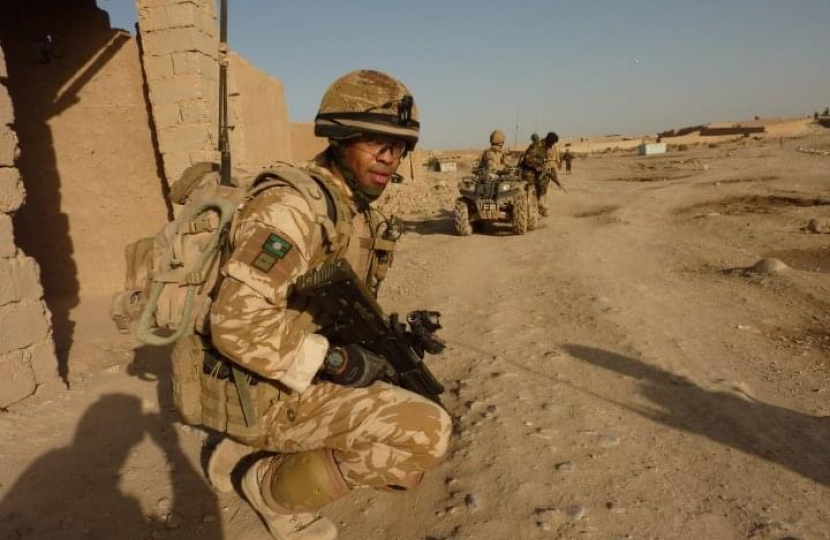
Commonwealth service personnel face the same hardships and hazards on operations as their British colleagues, those who leave the Armed Forces do so without the automatic guarantee of residency or citizenship of the nation for which they have served. Following several high-profile instances highlighting the pitfalls of the process for Commonwealth veterans, it is vital that we seek to redress the disadvantage that the current system places upon them.
Upon joining our Armed Forces, personnel from Commonwealth countries are granted ‘exempt immigration control’ status. However, it ceases to apply immediately upon discharge. The MoD state that the department “makes clear to foreign and Commonwealth recruits into the forces the process by which they and their families can attain settlement in the UK, and the costs involved”. Whilst that may be the case, the £2389 per person cost for Indefinite Leave to Remain (ILR) is significant and confers no advantages or prioritisation for military service, in stark contrast to the costs of attaining full US citizenship. In the United States, non-US citizens become eligible for naturalisation following an honourable discharge from military service. The cost to those who have served is a mere $85 administration charge in return for full US citizenship.
I propose the following changes to the naturalisation process are implemented for Commonwealth service personnel and their dependants:
- We should seek to waive the £2389p/p ILR fee in return for their commitment to having served the country. There will be those who have not pursued the legal right to remain in the UK following service due to the prohibitive costs they stood to incur. From my own experience, leaving the Army and embarking on a new career without the familiarity and structure of the military is a daunting enough prospect without the unnecessary additional hurdle of regularising your immigration status. To do so at a cost of thousands of pounds, via either a loan or use of their resettlement package, sets our Commonwealth veterans at an immediate disadvantage that could easily be mitigated.
- Current rules state that Commonwealth veterans qualify for ILR after four years’ service, but in order to action this they must immediately apply to the Home Office upon discharge. Many Commonwealth veterans have found this opaque and not made sufficiently clear during the discharge process. It would be both more efficient and inclusive to automate the application, making it a standard step of the discharge process, one that can be made opt-out rather than opt-in and ensure that no veterans are left without having exercised their option whilst still in uniform.
- We should seek to broaden the scope of the changes to those who have already left the service; those who through choice, owing to the prohibitive expense, or administrative oversight, have been left without the status of ILR either here or in the country of their birth. Whilst we can do little to atone for the inconvenience and disruption caused to those who have been forced to return home, we can offer those eligible the opportunity to reapply retrospectively under the criteria outlined above, and allow them the opportunity to fulfil the potential plans they had prior to leaving.
- We should also consider how we can facilitate reimbursing those who have already had to outlay the fees required to stay. Given the comparatively low numbers of those affected, the gesture of goodwill would go some way to allowing our Commonwealth ex-service personnel to start their post-service careers on an equal footing with their fellow former servicemen and women without the burden of incurring a financial penalty for the privilege.
*UPDATE - FEBRUARY 2022*:
The Government proposes to waive the £2,389 fee to obtain Indefinite Leave to Remain required for non-UK veterans, including Gurkhas, who have served for at least six years, as well as those who have been medically discharged due to an illness or injury attributable to their service. There are currently over 9,000 service personnel across our Armed Forces who stand to benefit from this policy change in the coming years.
Whilst individual service personnel now stand to benefit from the removal of fees, their dependents do not. Thus, we may still see non-UK veterans faced with fees of thousands of pounds in order to allow their spouse or their children to live in the UK alongside them.
You can read my thoughts on this issue in Conservative Home (2020), Conservative Home (2022) and The Telegraph.
